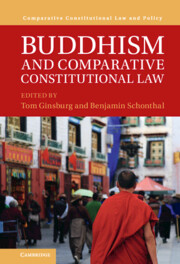
-
- You have access
- Open access
- Publisher:
- Cambridge University Press
- Online publication date:
- November 2022
- Print publication year:
- 2022
- Online ISBN:
- 9781009286022
- Creative Commons:
-
This content is Open Access and distributed under the terms of the Creative Commons Attribution licence CC-BY-NC-ND 4.0 https://creativecommons.org/creativelicenses



